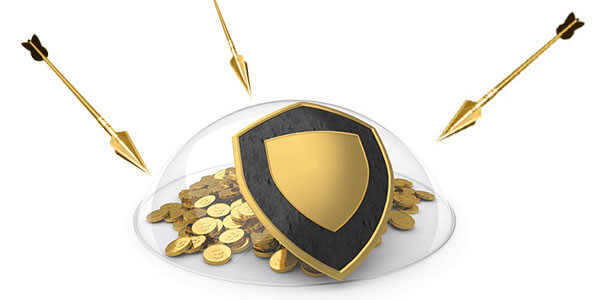When an individual or business is unable to pay off its debts, they file for bankruptcy protection under the bankruptcy laws of the United States. In the US, bankruptcy laws vary from state-to-state. The protection, which a debtor is entitled to depends on the types of bankruptcy he/she is filing.
Bankruptcy (chapter 7, 13 and 11): A brief look
The two types of bankruptcy commonly filed by individuals are - chapter 7 and chapter 13. Chapter 11 bankruptcy is also well-known among individuals who want to save their small business. There are various other types of bankruptcy too. But, some of the bankruptcy protections for the above mentioned 3 chapters are mentioned here.
Chapter 7 bankruptcy known as “straight” or “liquidation bankruptcy”cancels debts and sells (or liquidate) some of the debtor’s property to pay off the outstanding balances. A trustee is appointed to carry out the debt repayment process.
In chapter 13 bankruptcy, a repayment plan is introduced to the individual to pay off debts. Here, the repayment plan is subject to court’s approval. It’s also called the “wage-earner bankruptcy”.
Chapter 11 bankruptcy, more appropriate for small businesses is also known as “rehabilitation bankruptcy”. In a chapter 11 bankruptcy, a small business seeks to reconstruct and continue working if it’s owned by a partnership, limited liability company or a corporation.
What are the protections offered by bankruptcy?
Bankruptcy offers protection in various situations such as:
# Bankruptcy protects a debtor from the harassing collection calls of the creditors. Once a debtor files for bankruptcy, he/she automatically gets entitled to the bankruptcy’s automatic stay. This gives protection from any lawsuit filed against the debtor.
# A chapter 7 bankruptcy gives protection from unsecured debts. Here, your non-exempt and unsecured assets are converted to cash to pay off your creditors. If you qualify for a chapter 7 bankruptcy, debts that aren’t backed up by collateral get completely liquidated. On the other hand, chapter 11 reorganization gives you time to pay off your unsecured tax debts up to 5 years.
# Once you file for chapter 13 bankruptcy, you get protection from foreclosure. Chapter 13 bankruptcy halts the home foreclosure process even if it has started. It helps to keep your house and gives you time to sort out mortgage debt in bankruptcy. You can take full advantage of this process if you file for this bankruptcy prior to the foreclosure. You should make regular payments and pay back the arrearages to save your home from foreclosure.
# If you want time to re-arrange your finances and pay off debts, then chapter 13 bankruptcyis appropriate for you. It gives you protection from unmanageable financial affairs. A chapter 13 bankruptcy proposes a brand new plan to pay back your debts.
# There is a misconception that income taxes are not dischargeable in bankruptcy. But the truth is that you can discharge your federal, state, and local income taxes in chapter 7, chapter 13 and chapter 11 bankruptcies. Even penalties and interests are also dischargeable in bankruptcy.
# There are millions of Americans who live on paycheck to paycheck. If creditors directly deduct money from their paycheck, it becomes quite difficult for them.
Are you facing wage garnishment or likely to face it? Then file for chapter 7 bankruptcy to stop the garnishment. The automatic stay in bankruptcy prevents the creditors from continuing their collection actions during your bankruptcy case.
# A chapter 13 bankruptcy helps to eliminate 2nd and 3rd mortgage payments. It entitles the bankruptcy court to re-divide 2nd and 3rd mortgages as unsecured debts. The recategorizing is possible only when your 1st mortgage is secured by the entire value of your home. This signifies that there is no remaining equity attached to your home for 2nd and 3rd mortgage security.
# Assets that are charged by liens can be sold off by the debtor using the chapter 11 reorganization. Chapter 11 court has the authority that grants a buyer to purchase those assets free of cost and helps to clear off the charges.
# A chapter 11 bankruptcy also helps to adjust the interest rates. Extreme high-interest rates on loans secured by commercial equipment, vehicle, or certain real estate can be lowered through a chapter 11 reorganization.
# Chapter 11 bankruptcy protects the business name, goodwill, and customer of a company. Thus, helps in the preservation of the company’s brand name.
# The bankruptcy law has chapters that provide distinct types of bankruptcy protections. For example -
* Chapter 12 bankruptcy gives protection to family farms and family fishing business.
* Chapter 9 addresses municipality bankruptcy. But, the federal courts pay a restricted role in the process.
* If an American citizen or US based-business declares bankruptcy, then a chapter 15 allows foreign creditors to take part in the bankruptcy court proceedings.
Do you remember any other bankruptcy protections? Then do share it with us. You can leave your answers in the comment box below.
Don’t miss out - Rich vs poor: Who suffers and who enjoys in bankruptcy?













